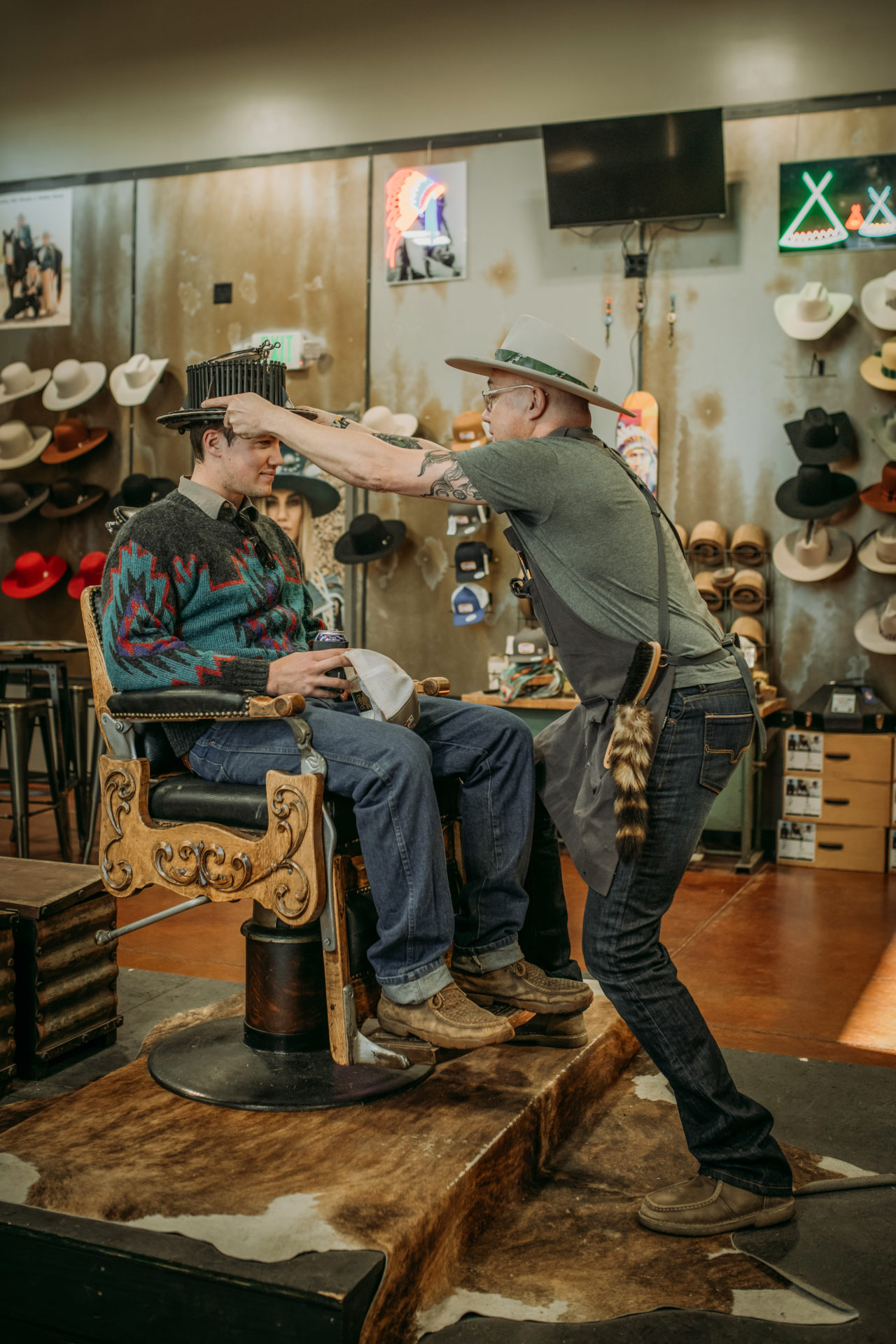When my elderly parents lost their lives in a fiery rollover car crash thousands of miles from their Colorado home last February, my initial hope was that my sisters and I could adequately honor them. That hope sustained me during the adrenaline-filled days that followed, but their immeasurable loss slowly sunk into my psyche.
Then I had to work on the burden that had, without warning, settled on my shoulders.
After we brought their bodies back from Texas and buried them quickly, according to Jewish law, I found myself mired in an absurd mix of shock and the pragmatism needed to confront the task of untangling their mortal lives.
There’s a huge amount of work required by a personal representative for estates under probate law, and even with my experience as a former attorney, dealing with that, and my grief as a daughter, was overwhelming.
My cousin in Switzerland put into words what I hadn’t been able to acknowledge even weeks later.
“The loss of our parents is a difficult moment, [but it’s] an important step in our lives,” Nicolas Grossfeld wrote in an email. “Suddenly, you realize you are an orphan, no longer someone’s child, and the magical, secret, reassuring place where you could take refuge no longer exists.”
I should have expected it to happen at some point, but even at ages 84 and 91, my parents remained relatively active. My mother was vibrant, and my dad was steady despite serious heart issues. He insisted he had the “Kahn” gene, one allegedly bestowing longevity.
“I’m planning to live to be 106,” he told me last summer.
I’d been startled by an enormous bird flying overhead when I was on a walk last October, its white feathers a stark contrast to autumn’s deep blue sky. In a season of football games and warm chili on the stove, the rattle of the great egret’s airy bones as it flapped a five-foot wingspan in the chilly breeze was a harbinger of winter to come.
When I got home, I Googled what it meant when a white bird flies over you and learned it might mean change—or death.
But most people don’t live and die by what the wind whispers.
Managing grief after a parent’s death
Americans are particularly bad at talking about things that have to be done when we lose loved ones, especially when it comes to money, wills and funeral plans, says Debby Baker, a clinical psychologist and co-founder of the Community Grief Center in Greeley. She says our reluctance makes it more challenging later to grieve and deal with everything you know (or don’t know) about your parent’s estate.
“We all know and expect that our parents won’t live forever, but that doesn’t mean we’re prepared when they die,” she says. “There are so many things to deal with—their home and personal effects, death certificates, insurance, banking—and it all has to be done at the worst moment of your life. If you don’t have any idea what your parents wanted, you have to figure it out, and you’re often second-guessing yourself.”
First, Baker recommends taking time to grieve. Feel your emotions, and if you’re overwhelmed by them, talk to a counselor, join a group or spend time with a friend who listens on the tough days. Talk it through, she says, and you’ll be able to move through the grief more effectively.
She also recommends using the tools available in your community. The Community Grief Center offers 10 free programs, including one called “Understanding Grief.” The center also offers support groups and classes.
Friends and family may be uncomfortable with the topic of death and encourage you to move forward, Baker says, but there’s no time frame for grief. She suggests pacing yourself by determining your priorities, taking it day by day and putting off what you can to the next week.
She also notes that family dynamics, such as each child’s relationship with their parents and siblings, play a role when tackling things like the estate. Dividing personal property, for example, can tip the scale of pleasantries.
“That becomes part of the grieving process,” Baker says. “There is a need to figure out how to make peace and move forward without destructing the whole family.”
Planning ahead: one of the greatest gifts you can give your family
Tim Brynteson, an attorney with Otis & Bedingfield who practices in Loveland and Greeley, says it’s never too soon to start thinking about your death, whether it’s planning your funeral or thinking about who might want your favorite tiepin.
“It feels like bad karma to start thinking about it,” he says, “but find ways to bring it up with your kids while you’re together for a holiday or ask them for a list of things that have given them the fondest memories.”
Having a plan in place for your will or irrevocable trust and beneficiaries will prevent a lot of hardship when you die, he adds.
“That’s a huge gift to your kids or surviving heirs,” Brynteson says. “When there’s no road map, it’s always more stressful.”
Beneficiaries should be on every account, even if jointly owned, including checking and savings accounts, IRAs and beneficiary deeds for real property, says Andi Lechman, a financial advisor with Edward Jones in Windsor. This establishes transfer-on-death beneficiaries, which are named beneficiaries who take ownership of the decedent’s assets without going through probate, the legal process used to transfer ownership of assets after someone dies. The fewer assets that have to go through probate, the better.
Probate can take six months or more, and sometimes beneficiaries need the assets to pay for final expenses or unexpected bills. In Colorado, it’s generally a very simple, unsupervised process once a personal representative is designated, according to Brynteson. However, if an estate doesn’t have beneficiaries to transfer property and investments to on death, those assets are tied up in probate, Lechman says.
Brynteson says one of the biggest, most stressful decisions to make is who’ll be in charge after you die. He advises clients to choose one person.
“It’s tempting to think people would work together, but it makes it more cumbersome and confusing,” he says. “It’s very important to have someone you trust to get the job done, including liquidating assets, closing bank accounts, transferring investments, sorting through personal belongings and divvying them up fairly.”
The size of your estate (what you own when you die) can determine whether you’ll need a lawyer to create a will or trust. Both documents name who’s in charge of handling the estate’s disposition.
If you die without a will—called “intestate”—who’s in charge is determined by Colorado statute. If you’re married, that’s your surviving spouse. If you have kids, they’ll all have equal authority, followed by nieces or nephews.
No will can cause problems: If you owe money to a creditor, they can take over, and if you have young kids and no will, there’s no one named as your children’s guardian, Brynteson says.
Brynteson and Lechman also encourage having powers of attorney for medical and financial decision-making before death.
“All kinds of things can happen while you’re alive but not able to make decisions because of an illness or disability,” Brynteson says. “It’s good to have someone as your agent.”
Taking the guesswork out of your last wishes
Planning your funeral ahead of time not only allows you to make difficult decisions while everyone is calm, focused and not grieving, Kelli Wyzinski says, but it also gives families peace of mind.
“This is someone’s very challenging moment, but it’s our everyday,” says Wyzinski, a licensed funeral director who manages a network of funeral homes for Dignity Memorial, including Allnutt Funeral Service in Fort Collins and Greeley.
From making funeral arrangements to coordinating with service providers and handling your loved one’s cremation or burial, having a funeral director can help. They can manage the flowers, obituaries and venue coordination, including their own spaces, if applicable.
Wyzinski suggests making these plans when you’re in your 50s or 60s to lock in current pricing and have the option of spreading payment over years. Dignity Memorial has personal planning guides to record final wishes, family heritage, military history and estate information.
Celebrating my parents
Handling the details of my parents’ unexpected deaths has consumed me over the last eight months. But it’s provided an opportunity to delve deeply into their lives, discovering who they were without being hampered by the ties of real time. In a sense, it’s a slow rewind, a chance to celebrate their individuality.
My parents, Bob and Monica Kahn, were kindred spirits. Travelers and adventurers, their Jewishness was at times too taxing for them. The religion defined their identities as survivors of Nazi Germany and the Holocaust. They felt obligated to tell, and re-tell, that story.
But they also sought to live outside that circumscription. They cultivated a wide variety of friendships, and the freedom of the western skies never lost its appeal. They loved to drive, explore and talk to strangers.
After their double funeral, two doves settled on the rooftop over the entrance to their home as people congregated to commemorate their lives at the shiva, beginning the period of Jewish mourning.
Eleven weeks later, I was drawn outside my home by a raucous gathering of hawks and falcons soaring at sunset, their wingtips gilded by the light.
I like to think that my parents were soaring with those birds, that they had found their tribe just as I began to accept they were gone.







